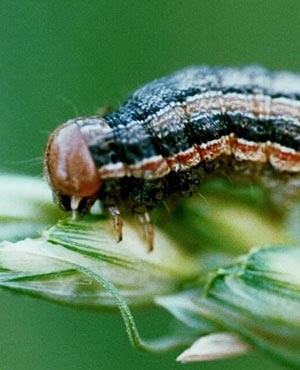
And I am prepared to bet that no one reading this blog post has any idea why. But I do because I’ve seen it all before.
Droughts are endemic in Africa and are often followed by floods. When that happens, there is an explosion of growth of grass and other plant matter, and Nature in its wisdom, tells all the little locust and other insect eggs to hatch and go on the rampage.
Of course Nature in its wisdom knows that the locust swarms and insect pests will create a feeding frenzy for Africa’s bird and small mammal populations. But Mankind does not live by Nature’s rules. Mankind thinks it is smarter than nature. What would be a feast for bird and small mammal populations are a plague to humans. Worse, they threaten economic interests and therefore insult the great God Money to whom all humans pray daily, regardless of the subsidiary religions that they claim to worship.
Anyone who speaks out against economic interests is regarded universally as an heretic of the worst kind.
Here is how this situation will play out and how so much of Africa’s wildlife is going to be wiped out.
I was farming in the Western Transvaal during the last drought and when the rains came we had locust swarms and a plague of army worms. Those army worms were awful things because they covered the ground like a carpet and everywhere you walked they stuck to the bottom of your shoes in a horrid squashed mess.
Of course all the landowners received government aid - in the form of poisoned corn, which they laid out and spread in long lines on their land. Sure enough the marching ranks of insect pests devoured the poisoned corn and died - but not before they had done great damage to the crops.
Insects provide the prey base for African wildlife. So behind the insect plague came every bird and small mammal in the affected area, gratefully feasting upon the plentiful insect food – and dying from poisoning in their thousands. All the little guinea fowl flocks, the meerkat families,the foxes –etc, they ate and died.
Once the poison has entered the food chain, up it goes to the raptors, and kills them too.
I did not spread poison on my land. Instead I waited to see what Nature would do. After a week or so of army worm infestation there arrived on my land hundreds of sacred ibises. Where they came from I know not, but I had never seen ibises on my land before. They cleaned up the veld until it was hard to see any army worms left. And then they flew away.
The grasses and vegetation soon recovered and within a month there was no evidence of any army worm damage.
But, I have little doubt that after cleaning up my land for me, the ibises would have landed on farms most of whom had spread poison out for the insects - and been wiped out.
The big chemical companies will deny that their product causes secondary poisoning and they will reassure the public with sophisticated public relations that their organophosphate poisons are eco-friendly and will break down in the soil once they have done their job.
Do not believe these blandishments. The poisons may break down in time but not before they have wiped out much of Africa’s wildlife. This PR may fool the public, but you can’t fool Nature.
And who will stand up for the wildlife in South Africa? We have a Department of Environment of course – the very same department that eagerly promotes canned lion hunting as 'conservation.' And we have the wildlife unit of the Department of Agriculture (DAFF) which eagerly promotes the use of gin traps and other forms of indiscriminate mass killing, which are aimed at small predators like caracals and jackals, but actually decimate bird and small mammal populations on South Africa’s farms.
In other words no one in SA will stand up for the wildlife. So buy shares in Bayer and Monsanto; the big chemical companies are going to make billions out of this calamity.
And turn a blind eye to the environmental destruction which you’re about to witness.
Do not forward the link to this post if you are afraid of being called ‘elitist’ or ‘racist’ or any other epithet dreamed up by chemical industry PR firms.
